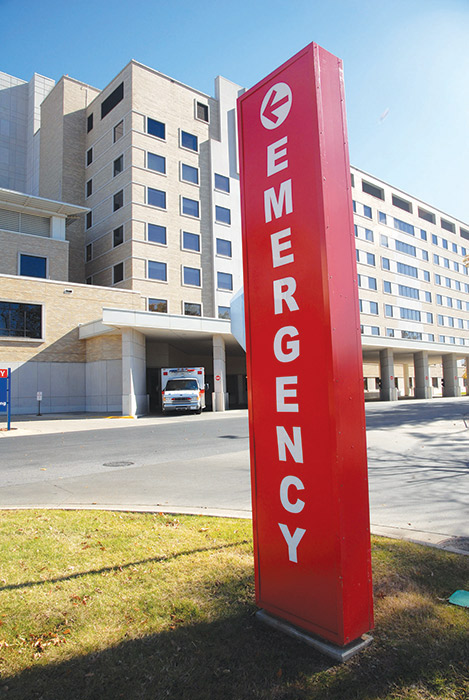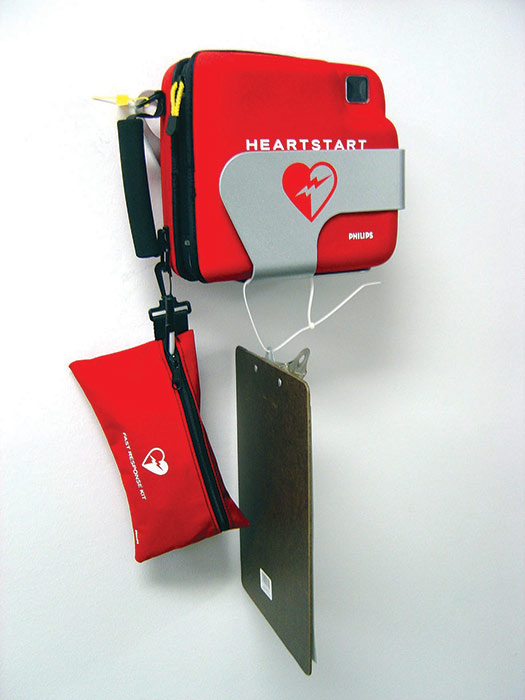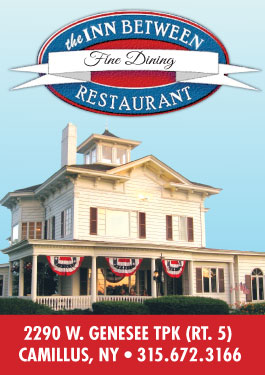Drop Dead!
I often use this line… “I like you…I hope you drop dead!!” Immediately, most people are, of course, taken aback until they think about it for a bit. I didn’t say drop dead right here and now. I said drop dead…eventually. Think about it for a minute and you will find yourself…reluctantly as always, agreeing with me. What are your eventual options? You could just keel over shopping or at dinner OR end up dying after a long and difficult fight with cancer. You could just die quietly in your sleep OR spend your last days drooling over yourself demented in the nursing home. Now, with this perspective I think you’ll agree that a short painless expiration is preferable to a long lingering finish. In essence…dropping dead, when you consider the other options, is quite desirable.
 What brings this issue to mind this month are two separate articles in the medical literature recently as well as my wife having to take a CPR class for her new job. I have been feeling pretty good about my medical pronouncements recently because things that I have been saying for years are finally making front page news in the Journal of the American Medical Association and in the New England Journal of Medicine and in the Cleveland Clinic etc… From Charles Krauthammer writing in the Washington Post about the dissatisfaction of doctors, to articles in JAMA about how diabetic care has to be personalized to the patient, to articles in the NEJM about the difficult issue of pain management with chronic opioids, and including two articles regarding CPR.
What brings this issue to mind this month are two separate articles in the medical literature recently as well as my wife having to take a CPR class for her new job. I have been feeling pretty good about my medical pronouncements recently because things that I have been saying for years are finally making front page news in the Journal of the American Medical Association and in the New England Journal of Medicine and in the Cleveland Clinic etc… From Charles Krauthammer writing in the Washington Post about the dissatisfaction of doctors, to articles in JAMA about how diabetic care has to be personalized to the patient, to articles in the NEJM about the difficult issue of pain management with chronic opioids, and including two articles regarding CPR.
The first article was about improvements in CPR but when you drilled down to the actual numbers what you find is that even in the best of hands out of hospital resuscitation gives you less than 1 in 10 chance of surviving to the hospital. Note this is not intact survival. It’s having a heart beat when you reach the emergency room. “Survival” often means living with major brain damage. The 1 in 10 chance is of course very optimistic…the more realistic number is that less than one person in 20 will survive long enough to reach the emergency room doors. They never talk about the part wherein most people who have been successfully resuscitated are never the same again. This is not the way I want to go!
Let me take a moment here because I know a lot of people are going to respond angrily to this article. They’re going to say they saw someone or know someone who was successfully resuscitated. Well, it’s got to work right sometime but I think when someone collapses in the store people rush to pound on their chest…they could have just had a faint or a seizure…but in the stress and urgency of the moment they get CPR even if they don’t really need it…then they wake up and it’s a “save from CPR.” Don’t take my word for it…ask any ambulance attendant or an emergency room nurse about the effectiveness of CPR. How often do people with no heartbeat get successfully brought back to life with no significant deficits?
Also, don’t get me wrong I am a big believer in defibrillation but not CPR. If someone collapses due to very irregular heartbeat called ventricular tachycardia or ventricular fibrillation…hooking them up to the defibrillator can restore a regular rhythm quickly and easily and the person will usually not have significant brain injury. This is a whole different kettle of fish from pounding on someone’s chest so hard which, if done properly, causes rib fractures and other injuries even as you try to save the person’s life.
The second article on CPR was an editorial commenting that even in the hospital with the plethora of trained personnel the survival to get to the ICU was only 20% and again these are people who survived just to be transferred to the ICU. They don’t give out the figures for the extent of brain damage. This article said we should be doing less CPR in part due to financial considerations because the last 90 days of people’s lives can be frighteningly expensive but my rejection of CPR is not based on finances. I am a doctor not an accountant. My point is that there is a time and a place for everyone to be born and for everyone to die. For us to attempt to intervene usually does not end well for the patient nor for the family for that matter.
I call for a respect of death. If you are religious, the line I would use is to say “If the Lord calls you home which He will do eventually, and He gives you an express pass by having you collapse suddenly and painlessly in your sleep let’s say…Why would you or anyone else want to delay it?” If you’re not religious, I point out the basic facts that when your heart gives out your brain and kidneys usually follow and instead of a dignified moment of silence for you as you pass you get instead days or weeks of slowly worsening in the intensive care unit until some doctor’s sad duty is to suggest to the family it’s time to turn the machines off and let the patient meet their end peacefully. It doesn’t have to be that way. We should have a better respect for the quality of healthy living and not try to deny aging or death. Of course this is a hard sell in a country obsessed with youth and looks. We have all kinds of celebrations when people give birth and I’m not saying we should celebrate death but we certainly should acknowledge it in a less desperate manner than we do today.
Again there are always exceptions and cold water drowning etc. may justify CPR but for the run-of-the-mill patient who collapses in the parking lot I personally don’t feel that I am doing them any favors when I perform CPR. I know it’s very unlikely to result in any quality time for the patient. For a doctor trained to help people, not taking action is difficult but I’ve learned through a fairly long career so far that sometimes the best action is no action.
 As you know CPR, until recently, has involved pounding on the chest and attempting to breathe for the person but the American Red Cross is abandoning the concept of breathing for the patients stating that pounding on the chest alone produces the same results as pounding and breathing. I propose to you that the reason they abandoned the breathing part of CPR is because it doesn’t work well, but then again I don’t believe that the pounding on the chest works well either. If a procedure works only one time out of 20 that to me is not successful.
As you know CPR, until recently, has involved pounding on the chest and attempting to breathe for the person but the American Red Cross is abandoning the concept of breathing for the patients stating that pounding on the chest alone produces the same results as pounding and breathing. I propose to you that the reason they abandoned the breathing part of CPR is because it doesn’t work well, but then again I don’t believe that the pounding on the chest works well either. If a procedure works only one time out of 20 that to me is not successful.
You know I love my mama but I hope she passes quickly and painlessly when her time finally comes. Making someone a Do Not Resuscitate or having a MOLST form or Health Care Proxy gives patients the chance to have some say in what’s done when they get sicker. Making someone a DNR doesn’t mean put them in a corner and ignore them. It means that when it’s obvious to health professionals and family alike that the end is near we treat the patient with dignity and not as a piece of meat. That people are given the option to die at home or in a comfortable setting surrounded by their family and friends, not being subjected to what I think is cruel and unusual punishment in a frantic environment during their final moments.
Many times my job as a geriatric specialist is to tell people that less may be more. Maybe you need less medicines. Maybe you need less testing at a certain age. Maybe we should look ahead and make plans for that final day whenever that might come. That’s something that each patient and doctor should decide together. You didn’t have any choice about how you came into this world but at least here in America you have plenty of choices about how you’re going to go out. A little planning done ahead of time can make a huge difference.










